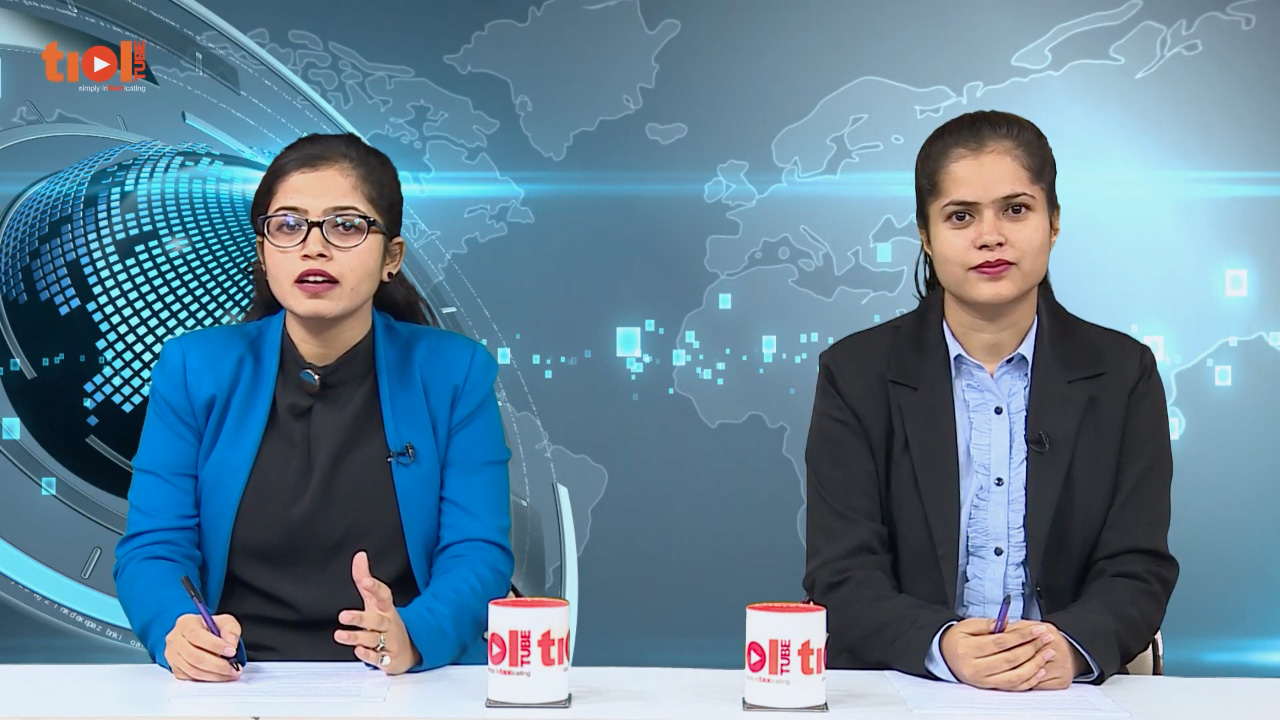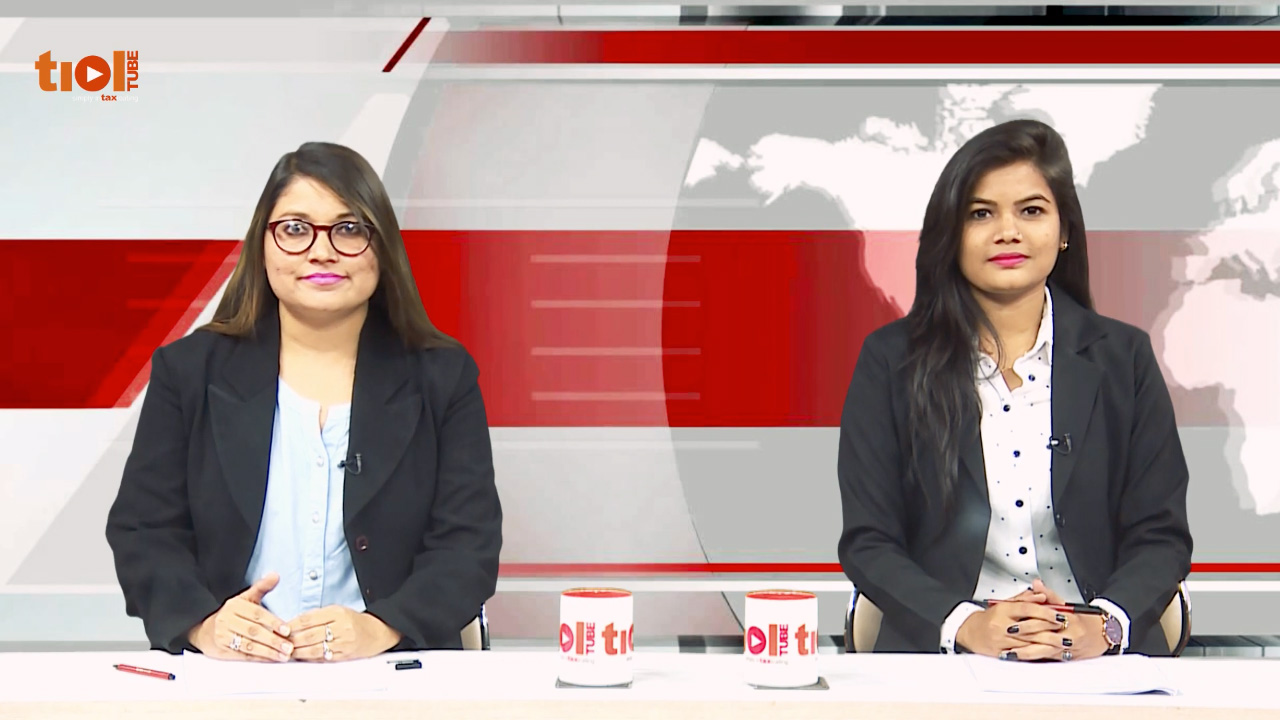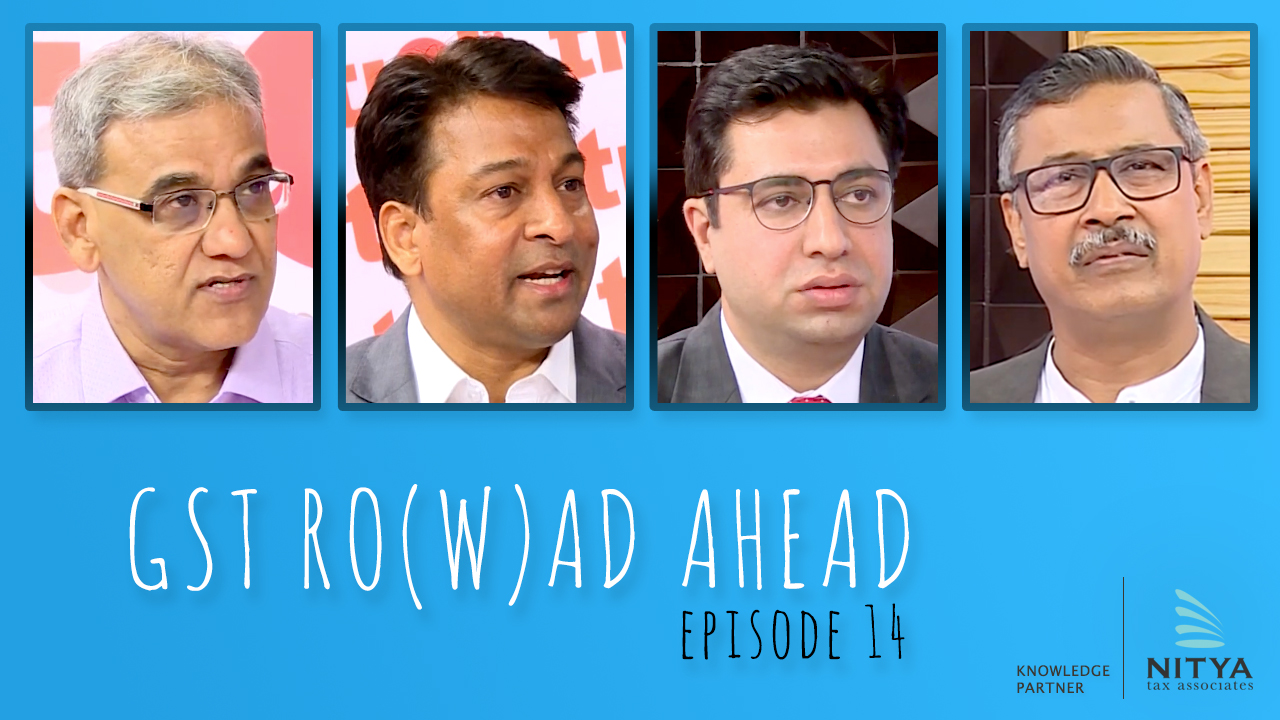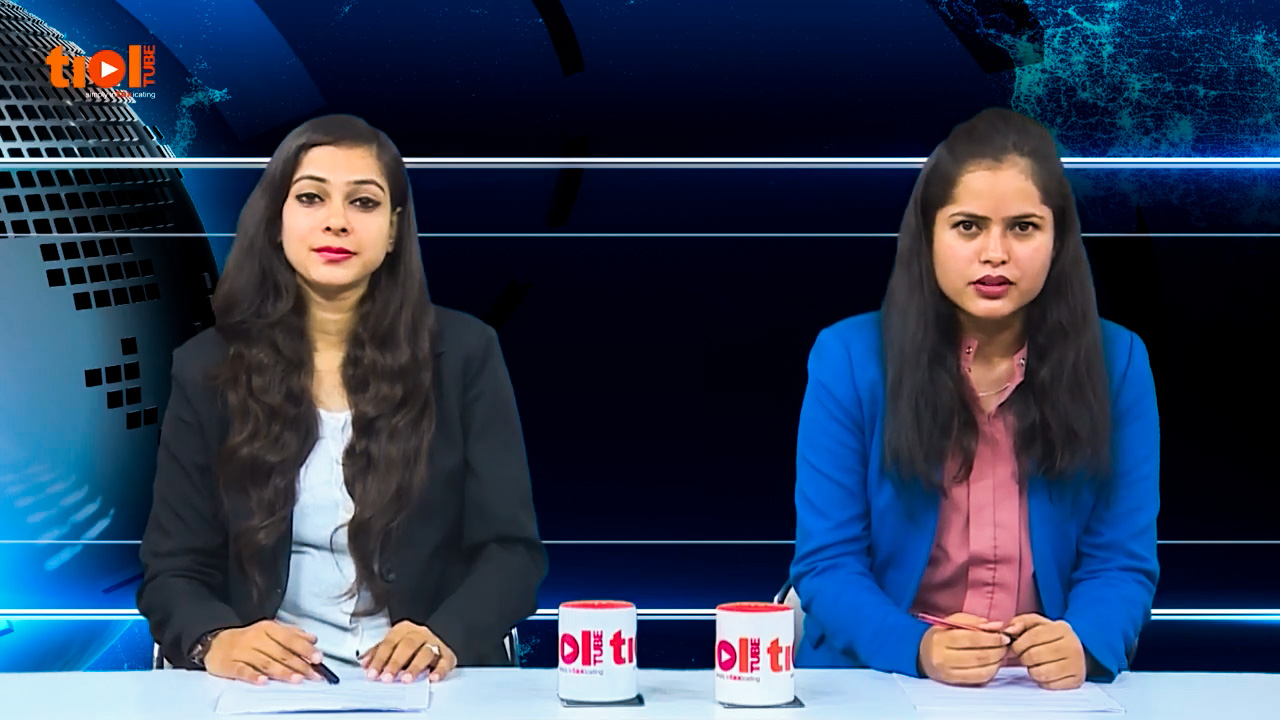|
SERVICE TAX
2019-TIOL-2876-CESTAT-ALL
CCE & GST Vs Indian Institute Of Technology
ST - The assessee had submitted an application for refund claiming that they had paid service tax under reverse charge mechanism on receipt of 'Works Contract Service and Manpower Service' which they were not required to pay - The Original Authority rejected the said claim of refund holding that assessee was liable to pay service tax under reverse charge mechanism being a business entity and being registered as a Body Corporate - On appeal, Commissioner (A) set aside the said order and allowed the appeal filed by assessee - As per Rule 2(1)(d) of CER, 1994 r/w Notfn 30/2012-ST, if manpower supply and works contract services are provided by an individual or hindu undivided family or partnership firm then the recipient has to pay service tax provided that the recipient is business entity registered as Body Corporate - The assessee is an Indian Institute of Technology, Kanpur established through Institutes of Technology Act, 1961 - It is very clear that all the grounds raised by Revenue have been dealt with by Commissioner (A) and Revenue could not raise any ground to counter the findings of Commissioner (A) - No merit found in the grounds raised by Revenue - Therefore, the impugned order is upheld: CESTAT
- Appeal rejected: ALLAHABAD CESTAT
G Ramakrishnan Vs CCE & ST
ST - The assessee is engaged in carrying out works related to manufacture of tractors within manufacturing vicinity of M/s. TAFE - M/s.TAFE had also outsourced the activity of manufacture of tractors to various persons like assessee to carry out specified work / task resulting in the manufacture of tractors - According to department, assessee not being independent contractor and worked under supervision of M/s.TAFE they are to be considered as man power supply agent - It was also noted by department that contract between assessee and TAFE was in the nature of labour contract and therefore the assessee have to be considered as man power supplier - On perusal of preamble of agreement itself, it is seen that assessee is an independent contractor appointed for executing work that are entrusted to him by TAFE - So also, it is stipulated that assessee shall be responsible for the defect in executing the works - Assessee executes the works along with other workers and merely because he has engaged other workers in executing the work, it cannot be said that he is the supplier of man power - In clause 11 of agreement, it is stated that the company will have privity of contract with contractor only and will give instructions only to the assessee/contractor and has nothing to do with the conditions of employment of workers who work with assessee - It can be seen that while the workers are engaged to work within the manufacturing activity premises they have to abide by certain labour legislations - Merely taking such licence or abiding by such labour law, it cannot be said that the contract for executing works within the manufacturing activity would be supply of man power - The conclusions that have been arrived by lower authorities can at best be termed as presumptive without any evidential or legal basis - The decision in case of Bhagyashree Enterprises - 2017-TIOL-1113-CESTAT-MUM covers the issue under consideration - Following the same, demand cannot sustain - Impugned orders are set aside: CESTAT
- Appeals allowed: CHENNAI CESTAT
CENTRAL EXCISE
2019-TIOL-2877-CESTAT-AHM
Patodia Filaments Pvt Ltd Vs CCE & ST
CX - The assessee is engaged in manufacture of Polyester Texturised Yarn and availing Cenvat credit of inputs used in manufacture of final products and capital goods for the period 09.07.2004 to February 2007 - They availed benefit of Notfn 29/2004-CE and cleared goods on payment of duty - From 01.03.2007, they started availing benefit of Notfn 30/2004-CE and reversed Cenvat credit proportionate to goods lying in their stock - There was balance of Rs. 2,86,83,157/- in Cenvat account after such reversal - The assessee thereafter in subsequent periods shifted their manner of clearance from Notfn 30/2004-CE to 29/2004-CE and vice versa till December 2011 - The assessee was issued SCN for period December 2007 to March 2011, proposing elapsing credit of Rs. 2,86,83,157/- - Meanwhile the assessee have utilized the Cenvat credit and the present demand is related to such utilization of credit - There is no dispute that present demand is out of accumulated credit balance as on 01.03.2007 for which the proceedings were initiated by issuing SCN - The Tribunal vide order - 2019-TIOL-1696-CESTAT-AHM held that the accumulated credit of Rs. 2,86,83,157/- was not lapsed by interpreting Rule 11 (3)(i) of CCR, 2004 - Since the proposal of elapsing accumulated credit itself has been set aside, the utilization for credit out of such accumulated credit cannot be questioned - Accordingly, the impugned order is set aside: CESTAT
- Appeal allowed: AHMEDABAD CESTAT
2019-TIOL-2874-CESTAT-DEL
Shri Nakoda Ispat Ltd Vs CCGST & C
CX - The assessee is engaged in manufacture of Sponge Iron and also availing the credit of service tax paid on input services and duty paid in respect of input & capital goods in terms of CCR, 2004 - In the manufacture of Sponge Iron, iron ore lumps of different sizes are firstly subjected to crushing and thereafter iron ore fines are taken out /screened out from the raw material handling plant - The screened out iron ore fines which are in powder form, cannot be used in the manufacture of sponge iron - According to Revenue, assessee has taken cenvat credit on inputs & input services, which has been used in manufacture of dutiable final products and exempted goods and further the assessee has not complied with the provisions of Rule 6 of CCR, 2004 therefore, a SCN has been issued to pay duty being 6% of total price of exempted finished goods as per Rule 6(3) of CCR, 2004 - Interest & penalty has been also proposed - The issue in the present appeal is covered by decision of Tribunal in case JSW Steels Ltd - Iiron ore fines is not a manufactured product - Thus on this score also, Rule 6 of Cenvat Credit Rules is not applicable - By following the aforesaid precedent ruling, Rule 6 of CCR, 2004 is not applicable to the present case - Accordingly, the impugned order is set aside: CESTAT
- Appeal allowed: DELHI CESTAT
2019-TIOL-2873-CESTAT-DEL
Secure Mobile India Vs CCE
CX - The assessee was awarded contracts by Petroleum companies such as M/s Indian Oil Corporation, M/s Bharat Petroleum Corporation, M/s IBP Co. Ltd for manufacture and installation of Retail Visual Identity Elements (RVI) at the petrol pumps of different companies - Broadly, RVI are those signs which display the name of different petroleum companies the unique look, common to all pumps dispensing products of these companies, by which a person going to the pump clearly identifies the pump that dispenses the products of that particular company - There were other elements also indicating the facilities at the pump and directions signs to help the vehicles using these pumps - The assessee was issued two SCNs in which the assessee was considered as manufacturer of branded goods (RVIs) for M/S IOCL - The first SCN was issued under extended period of limitation - Though in various SCNs, the assessee was considered manufacturer of RVIs but no evidence were bought on record as to in which manufacturing premises of assessee, the said RVIs were manufactured - In reply to the SCN, assessee furnished documents in their support establishing that the entire work of fabrication of RVI elements were got done from the various job workers - The Commissioner in his order has though conceded that the assessee is liable to pay Central Excise duty even though they did not have any manufacturing premises, as the onus to prove the principal to principal relationship between them and the jobs worker were upon them which have not been fulfilled by them - The findings of Commissioner not found to be legal, as the Commissioner was legally bound to confine his findings with respect to charges levelled in SCNs - Next issue to be decided is as to whether the assessee could be considered as a manufacturer of goods in terms of Section 2(f) of CEA, 1944 - The assessee have brought sufficient evidence on record that the job workers were independently fabricating the various components on RVI elements - The assessee was issuing TDS certificates to all the job workers - Some of the job workers were even registered with the service tax department - Further, it has also been accepted by Commissioner that the assessee was not having manufacturing premises - Though the department has relied upon the statement of Shri Ajay Thakur but since Shri Ajay Thakur was not available, the assessee agreed to cross examine Sh. S.K Upadhyay who stated that they were engaged for third party inspections of the various components of RVI - They had inspected the components of RVI supplied by assessee - All these facts would therefore clearly establish that the job workers were fabricating the components of RVI independently and hence they are to be considered the actual manufacturers in terms of Section 2(f) of the Central Excise Act - The status of assessee is that of supplier of raw material to various job workers who had actually manufactured the goods - It is not a case where the department could invoke extended period of limitation due to various reasons - Firstly, the assessee was registered with service tax department in respect of works contract service w.e.f 6.10.2007 - Secondly, assessee was not having any manufacturing unit but for a few and were getting the components of RVI fabricated on job works basis - Thirdly, fully manufactured RVI elements came into existence at site only - All these facts are sufficient to come to a definite conclusion that there is no willful suppression or misstatement of facts by the assessee - Hence extended period of limitation is not available to department - The impugned orders are not sustainable and so is the case for imposition of penalties on assessee - The orders are, accordingly, set aside: CESTAT
- Appeals allowed: DELHI CESTAT
CUSTOMS
2019-TIOL-2346-HC-DEL-CUS
Pr.CC Vs Ahamed Mujjaba Khaleefa
Cus - (i) Whether the CESTAT has failed to appreciate that the Commissioner (Appeals) has relied upon evidences i.e. invoices/bills which were not produced at the time of investigation and adjudication proceedings? (ii) Whether the CESTAT failed to appreciate that the onus of proving that the goods are not smuggled falls under the ambit of section 123 and, accordingly, the burden of proving the fact that the goods are not smuggled and have been purchased locally shall be on the person from whose possession the goods were seized? (iii) Whether the CESTAT failed to appreciate that the statement of the Respondent under section 108 of the Customs Act, 1962 [Act] was corroborated by circumstantial evidences viz. travel ticket, boarding card, baggage tag, Railway tickets etc for reaching conclusion of smuggling of gold by him?
Held: The facts that (i) the respondent had admittedly travelled from Dubai to India on the day when the gold was seized from him, (ii) the gold was over 2 kg in weight, (iii) neither during investigation, nor at the stage of adjudication, did the respondent disclose any evidence, or even reveal the name of the person who, purportedly, had sold the goods to him in India, or the person to whom the goods were to be delivered in Mumbai,(iv) in his statement, under Section 108 of the Act, the respondent categorically admitted having smuggled the gold from Dubai to India and (v) the said statement was never retracted, seen in conjunction, clearly belie the respondent's assertion that he had come into possession of the seized gold by licit means - these facts, cumulatively seen, clearly indicate that the seized gold was smuggled - the respondent cannot be said to have successfully discharged the burden, cast on him by section 123 of the Act, to prove licit possession of the seized gold - in view of the aforesaid provisions of the law and the facts and the judicial pronouncement [ Balumal Jamnadas Batra v. State of Maharashtra, 1983 (13) E.L.T 1558 (SC) ], the respondent could not explain the possession of the gold which is 2.015 kgs and looking to the statement under section 108 of the Act of the respondent, also no explanation has been given as to who has given the gold to the respondent when the goods were seized - the substantial questions of law, as framed by this Court, are, therefore, answered in favour of the Revenue and, against the respondent - in view of the aforesaid reasons, the aforesaid questions are answered accordingly, this Revenue appeal is allowed and disposed of : HIGH COURT [para 30, 31, 32, 33, 34, 35]
- Appeal allowed: DELHI HIGH COURT
2019-TIOL-2872-CESTAT-MUM
CC Vs Palava Dwellers Pvt Ltd
Cus - The assessee-company claimed refund of SAD under Notfn No 102/97-Cus - The Revenue rejected the refund claimed on grounds that the goods were imported and used in civil construction and that the burden of passing on for SAD is not clear is not clear from the facts on record - Another reason given was that sale invoice for resale of the imported goods was not given - Such findings were quashed by the Commr.(A) - Hence the present appeals.
Held - The Commr.(A) was justified in holding that in case of imported goods being used for construction of immovable property, being a case of deemed sale or passing of the property in goods used in construction, no separate tax invoice needs to be issued, as the conveyance is done through deed of sale, duly registered before the competent authority - In such case, the requirement of invoice for sale is supplanted by deed of conveyance - There is no case made out of the imported goods being consumed - It is also not the Revenue's case that the goods are fuel or pesticides which are not transferable after use in civil construction - The imported goods are tangible goods used in civil construction and are deemed to be transferred to the buyer of the property, attracting sales tax under the VAT laws and also attracting service tax on the service portion of the transaction - Moreover, there is no tax invoice or any other invoice, owing to which no question arises of passing on SAD to the buyer of the commercial units or dwelling units - Hence the assessee is entitled to refund of SAD: CESTAT
- Revenue's appeals dismissed: MUMBAI CESTAT
2019-TIOL-2871-CESTAT-ALL
Shiv Enterprises Vs CC
Cus - The assessee imported Old and Used Offset Printing Sheet-Fed Machines & declared their value at Euro 34000 - On further examination, the value was enhanced to Euro 67600 - Demand for differential amount of duty was raised and penalties were imposed - Such findings were sustained by the Commr.(A) - Hence the present appeal.
Held - From the O-i-A in challenge, it is seen that the enhancement is based solely on suggestions made by the Chartered Engineer - It is trite law that before proceeding to enhance assessments, the onus lies on the Revenue to establish that the transaction value agreed upon between the importer & supplier of goods did not reflect the agreed transaction value - The Revenue must provide evidence showing that the agreed upon price was not the sole criteria for supplying goods and that there were some under-hand transactions - In absence of such evidence, no enhancement can be done - The O-i-A upholding the same is unsustainable: CESTAT
- Assessee's appeal allowed: ALLAHABAD CESTAT |
|







